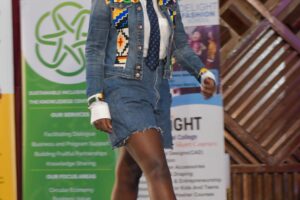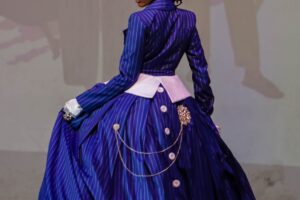Real-World Experience in Our Tailoring Workshops
Introduction
In fashion education, hands-on experience is indispensable. At Delight Fashion School, our tailoring workshops are designed to bridge the gap between classroom learning and the demands of the fashion industry. These workshops immerse students in practical scenarios that simulate real-world tailoring challenges, preparing them for professional success.
This article delves into how our workshops offer invaluable real-world experience, sharpening students’ skills and boosting their confidence.
- Simulating Industry Conditions
Our workshops recreate authentic tailoring environments by providing:
- Access to professional-grade sewing machines and tools
- Realistic deadlines to mimic industry timeframes
- Fabric and material varieties that students will encounter in the market
This simulation helps students adapt to the fast-paced and resourceful nature of tailoring careers.
- Working on Client-Based Projects
To develop client management skills, students undertake projects such as:
- Creating custom garments based on client briefs
- Conducting fittings and adjustments
- Managing timelines and expectations
This experience enhances their communication skills and attention to detail.
- Emphasis on Quality and Precision
Workshops stress the importance of:
- Accurate measurements and pattern fitting
- Neat seam finishes and professional construction techniques
- Quality control checks for durability and appearance
Students learn that precision and quality are non-negotiable in the tailoring business.
- Problem-Solving and Adaptability
Tailoring often requires quick thinking and problem-solving. Our workshops challenge students to:
- Troubleshoot fitting issues
- Adjust designs based on client feedback
- Manage unexpected fabric behavior or machine problems
This hones their adaptability—a critical skill for any tailor.
- Collaborative Learning
Students work in groups on larger projects, fostering teamwork and shared problem-solving. They learn to:
- Delegate tasks based on strengths
- Offer and receive constructive critiques
- Coordinate to meet project deadlines
Collaboration mirrors real industry settings where teamwork is essential.
- Exposure to Different Garment Types
Workshops cover a variety of garment styles, including:
- Casual wear like shirts and trousers
- Formal wear such as dresses and suits
- Traditional African garments with cultural significance
This variety broadens students’ skill sets and marketability.
- Feedback and Continuous Improvement
Instructors provide detailed critiques on:
- Technical execution
- Creativity and design choices
- Professionalism and time management
This ongoing feedback loop fosters growth and mastery.
- Portfolio Development
Students compile workshop projects into professional portfolios that:
- Showcase their skills and versatility
- Serve as powerful tools when seeking employment or clients
- Reflect their journey and growth as tailors
A strong portfolio opens doors in the competitive fashion industry.
Conclusion
Our tailoring workshops at Delight Fashion School go beyond theory, immersing students in real-world scenarios that prepare them for the challenges and opportunities of the fashion industry. Through practical projects, collaboration, and expert guidance, students build confidence and competence to thrive as professional tailors.



